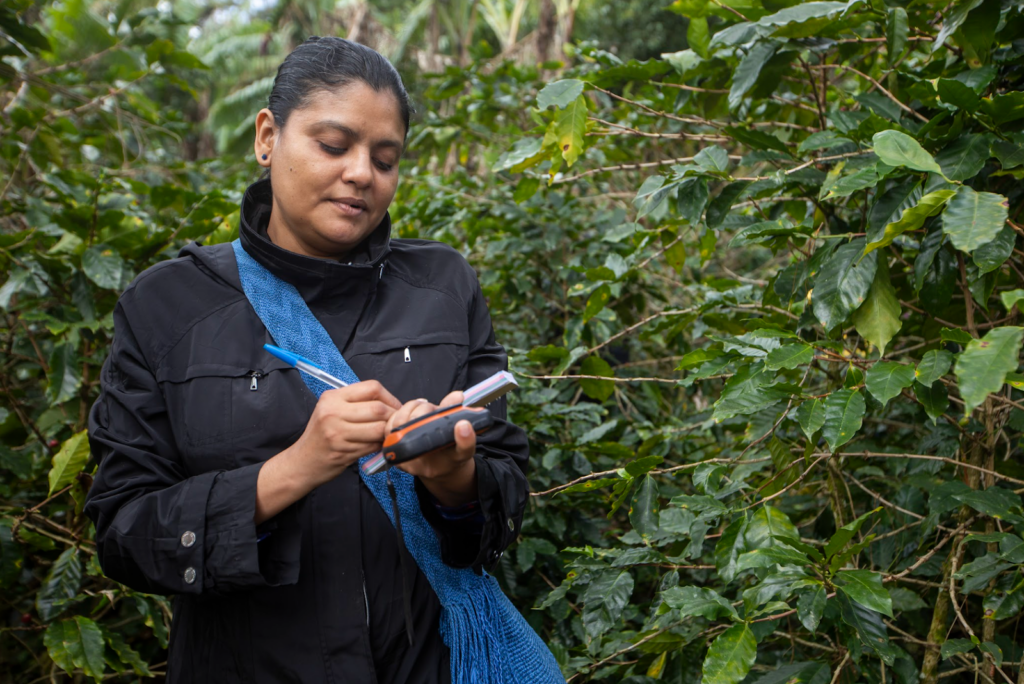In agriculture, these technologies and the data that they generate can be useful for addressing smallholder challenges, including climate variability and market demands, while also supporting long-term profitability and the development of sustainable businesses.
The enthusiasm for technology solutions must be supported by systems that add real value to the smallholders’ businesses, ensuring that their investments are profitable and yield results that have social and environmental impact. It’s important that organizations and companies have a clear strategy on how any data generated will benefit all parties involved. This entails organizing and implementing policies, procedures, and standards for the effective use of data.

There are eight key components in any data strategy:
- A vision for data management
- A compelling business case
- Principles and values
- Data management mission and objectives
- Defined roles and data management organization
- Description of data management program components and initiatives
- Project implementation roadmap
- Data management success measures

To apply an effective data strategy to social development, we must also consider the human side, analyzing how we can obtain more value from the data to impact the people we work with (smallholders, workers, communities, women, youth, etc.).
The ability to interpret data, or generate relevant information from analysis, requires significant investment in resources, expertise, hard work, and consistency. It also relies on increasingly faster, more collaborative, and transparent processes. This important investment in resources is supported by making intelligent decisions that contribute to business success and expected impact.

For example, registering the use of agrochemicals is crucial for ensuring food safety. Recording climate parameters, such as water availability, leaf temperature, and plant vigor, allows for optimal irrigation timing and improved water management. Keeping records of production costs and sales provides insights into farm expenses and revenues, enabling better decision-making. Documenting implemented practices and production volumes allows for evaluating practice effectiveness and identifying potential areas for improvement.

Solidaridad has several success stories, including where women smallholders have used digital tools and technology to build sustainable and inclusive value chains. These tools enable them to make informed decisions to improve their incomes and increase productivity in a sustainable way.
As we can see, data is indispensable for the efficiency and sustainability of agriculture, upon which we all depend as individuals. However, there is a digital gap in accessing and utilizing information among different stakeholders in the value chains. While we have made significant progress in using technology for informed decision-making in the agricultural sector, we must continue working towards creating an inclusive and transparent competitive environment for all.

Article originally published in Spanish on LinkedIn by Patricia Gomez, Regional Coordinator Impact & Quality Solidaridad Latinoamérica.

